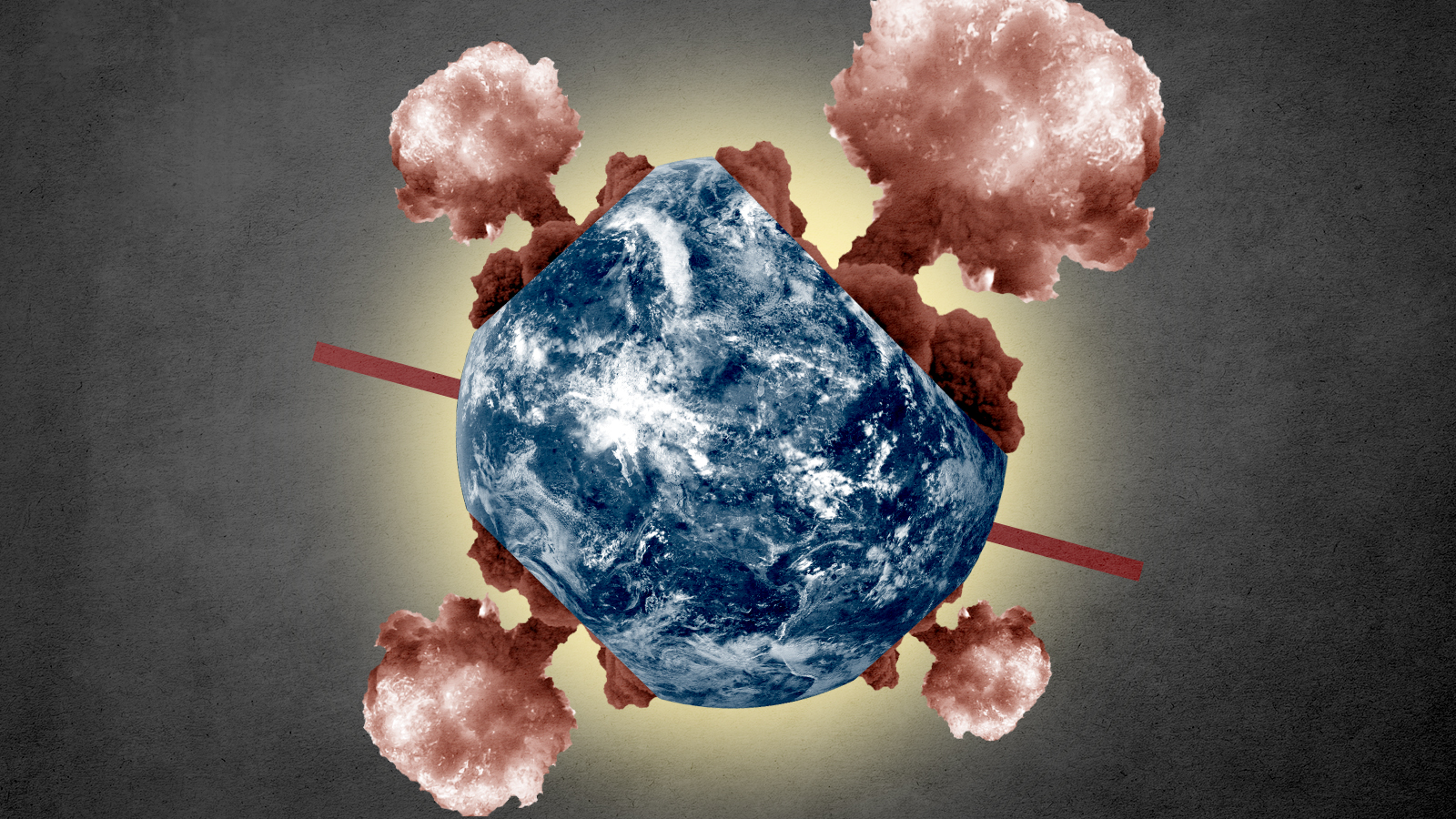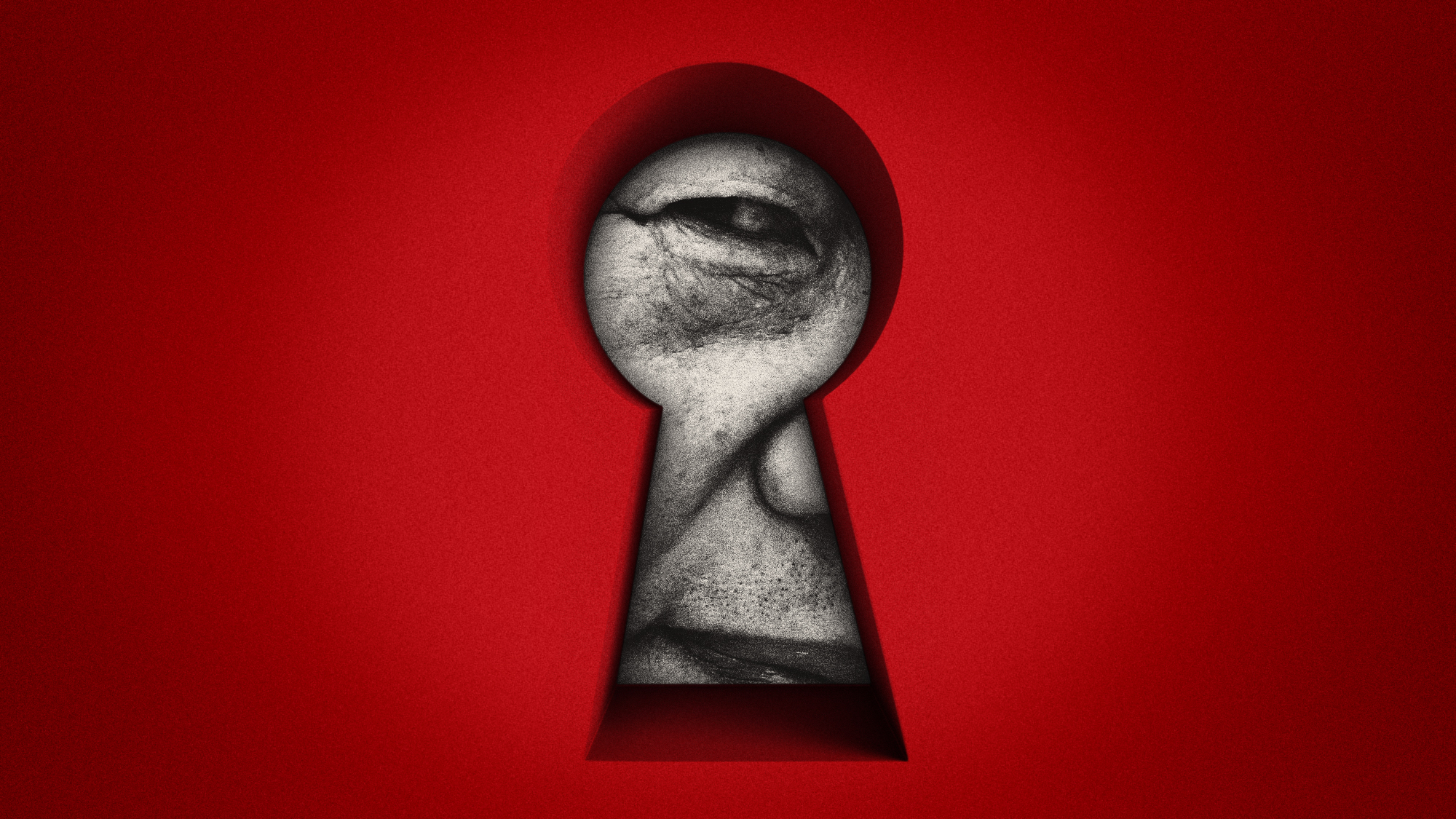Why Russia's big stash of small nukes isn't the advantage you fear


A free daily email with the biggest news stories of the day – and the best features from TheWeek.com
You are now subscribed
Your newsletter sign-up was successful
What's a tactical nuclear bomb? It is — drumroll please — a nuclear bomb.
But please don't worry; they're small ones. Some are "only" the size of the weapons that flattened Hiroshima and Nagasaki. Some are smaller than that. Some are so small they can be launched as artillery shells. Some can be dropped by airplanes or put on the tips of short(ish)-range missiles. Some tactical nukes could even be carried on your back, though it probably wouldn't be good for you.
There's been a fair amount of conversation online about the "tactical weapons gap." The United States has 230 of these smaller nukes, with reports that around 100 of those are in Europe. Russia has as many 2,000, most already in the European theater, and Russian President Vladimir Putin has seemed to indicate a willingness to use them, most likely if he felt himself to be losing in Ukraine, or if NATO joined the fight.
The Week
Escape your echo chamber. Get the facts behind the news, plus analysis from multiple perspectives.

Sign up for The Week's Free Newsletters
From our morning news briefing to a weekly Good News Newsletter, get the best of The Week delivered directly to your inbox.
From our morning news briefing to a weekly Good News Newsletter, get the best of The Week delivered directly to your inbox.
So, what would this gap really mean? Would it be decisive in a war?
No. "If we were to unleash a couple of hundred versus a couple of thousand [tactical nukes] it would be a distinction without a difference," Retired Air Force Maj. Gen. Robert Latiff told The Week.
The sheer destructive power of each side renders the details significantly irrelevant. Tit for tat, by the time the U.S. is outgunned, we're at 460 nukes launched. It's enough to destroy every tank in this war. It's certainly enough to kill millions of civilians. The Russians could keep going from there, but now we're into madness land. And having run out of the little nukes, and afraid of losing, would we really stop without resorting to one — just one — strategic bomb?
If that happens, a war like we've seen before becomes a war unlike anything we've ever seen before. A tactical nuclear strike has taken us into an unwinnable strategic nuclear war.
A free daily email with the biggest news stories of the day – and the best features from TheWeek.com
The truth is no one is sure what would happen if even one of these tactical nuclear bombs were used in war. According to Latiff, the international reaction would differ if it happened in Ukraine itself or, say, in Poland. But the only people who really know how escalation would work aren't telling. The strategy for reacting to a small nuclear provocation is top secret, Latiff said.
Does that uncertainty make it more likely or less Putin would use one of these bombs? He may bank on a sub-nuclear NATO reaction. Or he may hold back because he can't bank on that. There are a lot of generals paid to think about these things. All the world can do is hope they're thinking clearly.
Jason Fields is a writer, editor, podcaster, and photographer who has worked at Reuters, The New York Times, The Associated Press, and The Washington Post. He hosts the Angry Planet podcast and is the author of the historical mystery "Death in Twilight."
-
 Trump touts pledges at 1st Board of Peace meeting
Trump touts pledges at 1st Board of Peace meetingSpeed Read At the inaugural meeting, the president announced nine countries have agreed to pledge a combined $7 billion for a Gaza relief package
-
 Britain’s ex-Prince Andrew arrested over Epstein ties
Britain’s ex-Prince Andrew arrested over Epstein tiesSpeed Read The younger brother of King Charles III has not yet been charged
-
 Political cartoons for February 20
Political cartoons for February 20Cartoons Friday’s political cartoons include just the ice, winter games, and more
-
 Is the Chinese embassy a national security risk?
Is the Chinese embassy a national security risk?Today’s Big Question Keir Starmer set to approve London super-complex, despite objections from MPs and security experts
-
 The mission to demine Ukraine
The mission to demine UkraineThe Explainer An estimated quarter of the nation – an area the size of England – is contaminated with landmines and unexploded shells from the war
-
 The secret lives of Russian saboteurs
The secret lives of Russian saboteursUnder The Radar Moscow is recruiting criminal agents to sow chaos and fear among its enemies
-
 Is the 'coalition of the willing' going to work?
Is the 'coalition of the willing' going to work?Today's Big Question PM's proposal for UK/French-led peacekeeping force in Ukraine provokes 'hostility' in Moscow and 'derision' in Washington
-
 Ukraine: where do Trump's loyalties really lie?
Ukraine: where do Trump's loyalties really lie?Today's Big Question 'Extraordinary pivot' by US president – driven by personal, ideological and strategic factors – has 'upended decades of hawkish foreign policy toward Russia'
-
 What will Trump-Putin Ukraine peace deal look like?
What will Trump-Putin Ukraine peace deal look like?Today's Big Question US president 'blindsides' European and UK leaders, indicating Ukraine must concede seized territory and forget about Nato membership
-
 Ukraine's disappearing army
Ukraine's disappearing armyUnder the Radar Every day unwilling conscripts and disillusioned veterans are fleeing the front
-
 Cuba's mercenaries fighting against Ukraine
Cuba's mercenaries fighting against UkraineThe Explainer Young men lured by high salaries and Russian citizenship to enlist for a year are now trapped on front lines of war indefinitely
